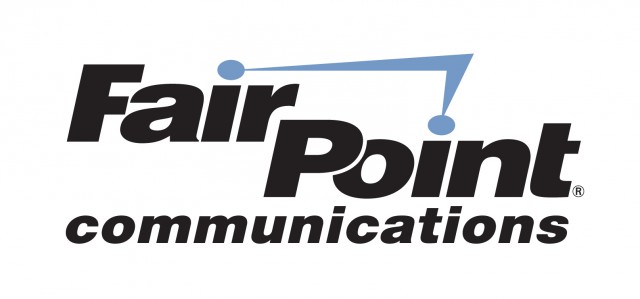 Just weeks after FairPoint Communications and union workers settled a prolonged strike involving more than 1,700 workers that began last October, shareholders are demanding the company sell itself and exit the business.
Just weeks after FairPoint Communications and union workers settled a prolonged strike involving more than 1,700 workers that began last October, shareholders are demanding the company sell itself and exit the business.
Investors are reacting negatively to today’s news that FairPoint’s quarterly losses accelerated during the 131-day strike to $136.3 million as the company spent an extra $73.6 million on temporary replacement workers and defending itself in strike-related negotiations.
Since FairPoint declared bankruptcy reorganization in 2011, the company has continued to post losses each year since, and those losses show no signs of ending. The company today abandoned issuing guidance on its future earnings for the rest of 2015, claiming it was uncertain of the impact of the strike on its future revenue.
They could ask customers like John Bouchard in Robbinston, Maine, who canceled after becoming fed up with FairPoint’s impotent customer service department, unable to resolve service problems during the strike.
Bouchard told the Associated Press after his FairPoint DSL service went out, he set up an installation appointment with the cable company and had to leave his home office and drive through a snowstorm to find Internet access while Time Warner Cable caught up with the demand for new service installations.
“It’s very frustrating,” he said.
 FairPoint’s unionized workers returning to the job openly worried about the state of FairPoint’s network after a hard winter and how inexperienced temporary workers maintained the facilities while they were on strike.
FairPoint’s unionized workers returning to the job openly worried about the state of FairPoint’s network after a hard winter and how inexperienced temporary workers maintained the facilities while they were on strike.
Multiple press reports documented instances of shoddy repair work from the temporary workers, including some safety hazards.
“We have to win back the confidence of our customers,” said Adam Frederickson, a FairPoint worker in Nashua, N.H.
Barry Sine, an analyst who follows FairPoint for Drexel Hamilton, a New York-based brokerage, said he believes it will take 30 to 45 days for the company’s workforce to restore service quality to pre-strike levels. But by then, thousands of customers are likely to have switched providers.
North Carolina-based FairPoint disagreed that the problems were serious. “The FairPoint network performed exceptionally during the work stoppage and our well-trained and qualified contract workforce provided superb support of that network,” said company spokeswoman Angelynne Amores Beaudry.
Sine believes FairPoint would have been a prime target for acquisition earlier if it were not for its legacy workforce costs, which include benefits the company just successfully cut in the labor contract that ended the strike. With the strike now behind the company, investors believe now is the time FairPoint should sell itself to maximize shareholder value.
“Shareholders are beating the drums; they want to sell this company now,” said Sine. “The unions, there’s no love lost with this management team. The unions would like a new owner as well.”
 Union leaders sense the company is already quietly getting the books in order for a sale.
Union leaders sense the company is already quietly getting the books in order for a sale.
Don Trementozzi, president of the Communications Workers of America Local 1400 in Portsmouth, N.H. told the AP the company seemed fixated on improving its books instead of focusing on customers.
“The brand has put a sour taste in the mouths of customers,” he said. “We’re going to go back to work and do everything we can to make this company profitable. But the brand, the name, suffered greatly in this. I don’t know if you can recover without a sale.”
In any sale, FairPoint executives and shareholders are likely to win the most. FairPoint workers, already challenged by significant benefit cuts, could face pressure from new owners to further reduce pay and benefits. FairPoint would likely sell for $25-30 a share, or around $780 million. But a buyer would also have to assume nearly a billion dollars in prior debt from a company that has never managed to post a quarterly profit since emerging from bankruptcy.
The most likely buyer would be Frontier Communications, already solidly established in the northeastern United States. But it may be too preoccupied with its recent $10 billion acquisition of Verizon landlines in Florida, California, and Texas to consider another acquisition. The next likely buyer would be Arkansas-based Windstream, followed by CenturyLink.
FairPoint’s president of Maine operations dismissed the speculation about FairPoint’s future, claiming it is focused on growing the business, not selling it.
“We have a responsibility to our customers, to our shareholders. We need to run the company as profitably as we can, to provide the best service that we can provide. That’s what we do,” he said. The union’s contention that FairPoint fought to cut worker benefits just to make itself attractive to buyers “is a stretch,” he said.
[flv]http://www.phillipdampier.com/video/WFFF Burlington FairPoint Workers React to Tentative Deal 2-24-15.mp4[/flv]
A FairPoint employee tells WFFF-TV in Burlington, Vt. how declining service may have finally forced FairPoint to the bargaining table with a proposal workers could accept. (2:51)


 Subscribe
Subscribe
And, Verizon would be a most unlikely(if not, “NO WAY”) buyer, since they passed the original trash to FairPoint.